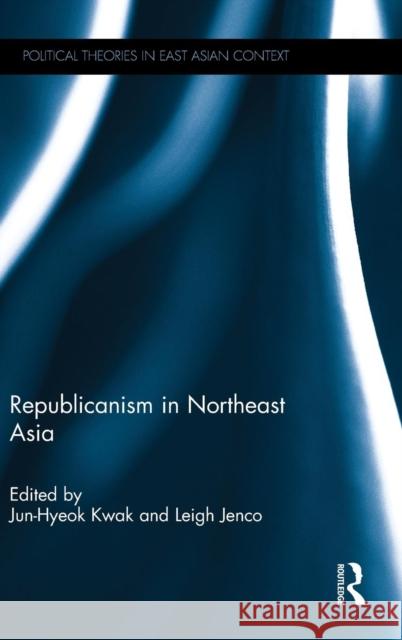Republicanism in Northeast Asia » książka
Republicanism in Northeast Asia
ISBN-13: 9780415746687 / Angielski / Twarda / 2014 / 200 str.
Republicanism in Northeast Asia
ISBN-13: 9780415746687 / Angielski / Twarda / 2014 / 200 str.
(netto: 744,80 VAT: 5%)
Najniższa cena z 30 dni: 705,23
ok. 16-18 dni roboczych.
Darmowa dostawa!
As rapid economic development brings increasing uncertainty in East Asia, interest in a new version of republicanism, termed iscalled neo-Roman republicanism, is growing across the region. Conceptualized as liberty as non-domination, this new form of republicanism has inspired not only Western but also East Asian political theorists. However, neo-Roman republican ideas in Northeast Asian countries continue to face serious conceptual and political challenges, which scholarly literature on both republicanism and on East Asian politics has largely failed to confront. This book addresses these challenges by surveying the latest theoretical contributions to the studies of republicanism in Western countries and the latest interpretations of how republicanism, including both communitarian republicanism and neo-Roman republicanism, has been appropriated in countries in East Asia. In particular, it deals with the key question of whether liberty as non-domination can work in non-Western contexts where the fundamental tenets of liberal democracy, such as moral individualism and value pluralism, do not predominate. Across three sections, the chapters first provide a conceptual overview of republicanism as a global political theory, they then consider how republicanism has historically been received, resisted, and translated into East Asia., and Ffinally, they examine how historically informed possibilities fit with the emergent needs of contemporary Northeast Asian societies. Overall, the contributors show that republicanism is an always-ongoing project, whose terms must be interpreted and translated into the various communities they inform. Normative considerations about whether or how republicanism applies in East Asia cannot be divorced from historical and empirical approaches which consider the various ways in which republican ideals reflect the realities of life there. Dealing with the issue of republicanism from a new, comparative perspective, this book will have broad appeal to students and scholars of Asian studies, comparative political theory, political philosophy, sociology, and history.











